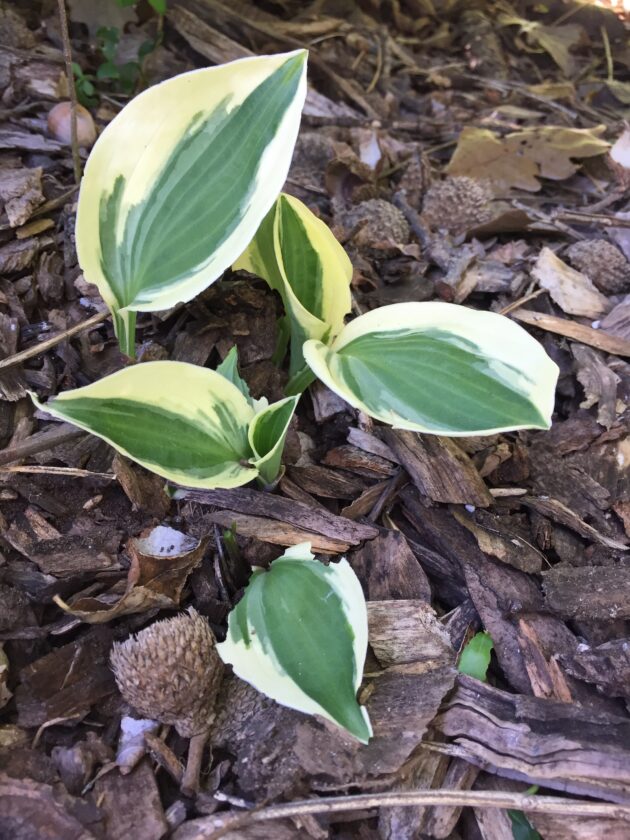Category: Pondering Peace
Creation Care and Climate Crisis Survey
Each morning I experience a resurgence of hope and wellbeing as I walk around our yard and notice the new emergence of life. From out of seemingly dead ground have come crocuses, daffodils, tulips, irises, peonies, hostas, and columbines, each blooming in their own time. Today the irises are in full elegant bloom, and the peonies are just opening up to display their extravagant beauty. Asparagus shoots have been emerging from the earth and growing a couple of inches daily so that each morning there is a small harvest to gather. Joyful sounding bird song emerges from among the light green lacy leaves, and birds flit through the air. A couple of days ago, the hummingbirds returned, perhaps having traveled thousands of miles to grace us with their presence. Rabbits, geese, blue herons, squirrels, and a woodchuck traverse our yard as they busily attend to their lives. This reemergence of life draws me to contemplate its source. It reminds me that the creator and sustainer of all that is and the source of life itself, the one whom people of faith call God, is active in the world. In this we ground our hope. The earth is alive and responds to God by bursting forth in new life. All of creation and creaturely life are visible expressions of God’s love and care.

With this deepening appreciation and growing love for God’s creation, I feel great sadness whenever I read about the threats of climate change and biodiversity loss. Humanity is a creature made of the earth and enlivened by God’s breath, as are other living things. We are part of an ecosystem upon which we are dependent for oxygen, food, water, and so much more. Yet we are destroying the earth and atmosphere upon which our very lives depend. This is happening in many ways, but the deepening climate crisis seems to me most ominous, as it affects all of earthly life.
Some time ago I began wondering about the level of concern that people and congregations related to Central Seminary have about the climate crisis and what they were doing in response. We designed a Creation Care and Climate Crisis survey and invited people to respond. During January 11 – February 23, 2023, 67 people self-selected to complete the online survey. This was not a random sample of the general population, but it did provide helpful information regarding those we are seeking to serve.
Of those who responded, 66% said they were very concerned about the climate crisis and 25% said they were somewhat concerned. Thus, 91% of those who responded indicated they were at least somewhat concerned. Of the remaining 9%, 4.5% were unsure of how concerned to be, 1.5% were not very concerned, and 3% were not concerned because they didn’t think climate change was happening or caused by humans.
When asked what they personally do to reduce greenhouse gas emissions and address the climate crisis, 83% of respondents said they recycle, 65% said they had reduced their energy use at home, 53% said they had reduced their use of plastics, 53% said they consume less meat and often eat a plant-based diet, and 47% indicated they compost and have reduced their food waste. Fewer people indicated they drive a hybrid car or one with high miles per gallon (38%), bike, walk or use public transportation (27%), plant trees (27%), engage in advocacy or communication with elected officials regarding the climate crisis (24%), or participate in a community group that addresses climate change (20%). Very few people had electrified their homes by replacing gas appliances, HVAC, and water heaters (17%), divested finances from institutions supporting fossil fuels (14%), installed rooftop solar (12%), eat only a plant-based diet (4/5%), or use an electric car (3%).
Somewhat similarly, the survey participants indicated that their congregations/organizations were addressing the climate crisis by recycling (52%), reducing energy use (40%), and reducing use of plastics (37%). In addition, some congregations were providing education about climate change solutions (32%), encouraging their members to take actions that reduce greenhouse gases (29%), planting trees on church grounds (25%), having a team of people working on reducing greenhouse gases (21%), and composting and reducing food waste (18%). Very few congregations had geothermal or rooftop solar (6%), had replaced gas appliances/HVAC with electric ones (6%), or had electric vehicle charging (3%). Reasons given for not doing more included lack of awareness and knowledge of what needs to be done (39%), lack of interest and urgency (34%), and everyone being too busy with no one responsible (29%).
Many leaders of faith communities/organizations indicated that they have preached (55%), focused worship (42%), or led/encouraged a study (27%) on creation care with mention of the climate crisis. Some had encouraged advocacy for climate action (24%), voter engagement (24%), and the church/organization developing a plan to reduce greenhouse gas emissions (21%). Faith leaders indicated they had not done more to address the climate crisis because they did not feel knowledgeable enough about climate change and solutions (40%), were too busy with other areas of ministry (32%), believed this was not an important issue in their congregations (24%), or saw their congregation as too politically divided to talk about it (21%).
This is a lot of data, but a few things stand out to me. There is a great deal of concern about the climate crisis among those related to Central Seminary. Many people and congregations/organizations are doing the things they know to do to address the issue. This is significant and hopeful. On the other hand, there is a great deal more that can be done. Some of the climate actions that are most urgent and impactful are done by only a few. This survey also indicates that both faith leaders and members of congregations/organizations feel they lack sufficient knowledge of what needs to be done, as well as lack a sense of urgency and therefore interest in doing more. The busyness of life and the polarized political environment also are contributing to inaction.
The survey also asked about learning opportunities that may be of interest. Highest interest was expressed in occasional zoom webinars on topics related to faith and climate action (74%). Respondents also expressed interest in a one day conference that equips people for climate action (33%) and groups to educate themselves and support one another in climate action (33%). Faith leaders expressed quite high interest in increasing their knowledge of biblical, theological, ethical, and pastoral issues raised by the climate crisis through a lectureship series (44%) or faith leader study group (42%). They also indicated interest in having guest speakers, preachers or presenters to address the climate crisis (39%) and being a part of faith leader group that supports one another in addressing climate change (31%).
The level of concern about the climate crisis, an awareness of the need for more information, and interest in educational and group support opportunities are hopeful to me. They indicate that there is much that the Buttry Center can offer that may be of help and support to those wanting to go further in caring for creation during our current climate crisis. I want to thank each person who took the time to respond to this survey! And I encourage you to be watching for the future learning opportunities that are being planned.
Rev. Ruth Rosell, Ph.D.
Director of the Buttry Center for Peace and Nonviolence
Associate Professor of Pastoral Theology Emerita
Central Seminary, Shawnee, KS
